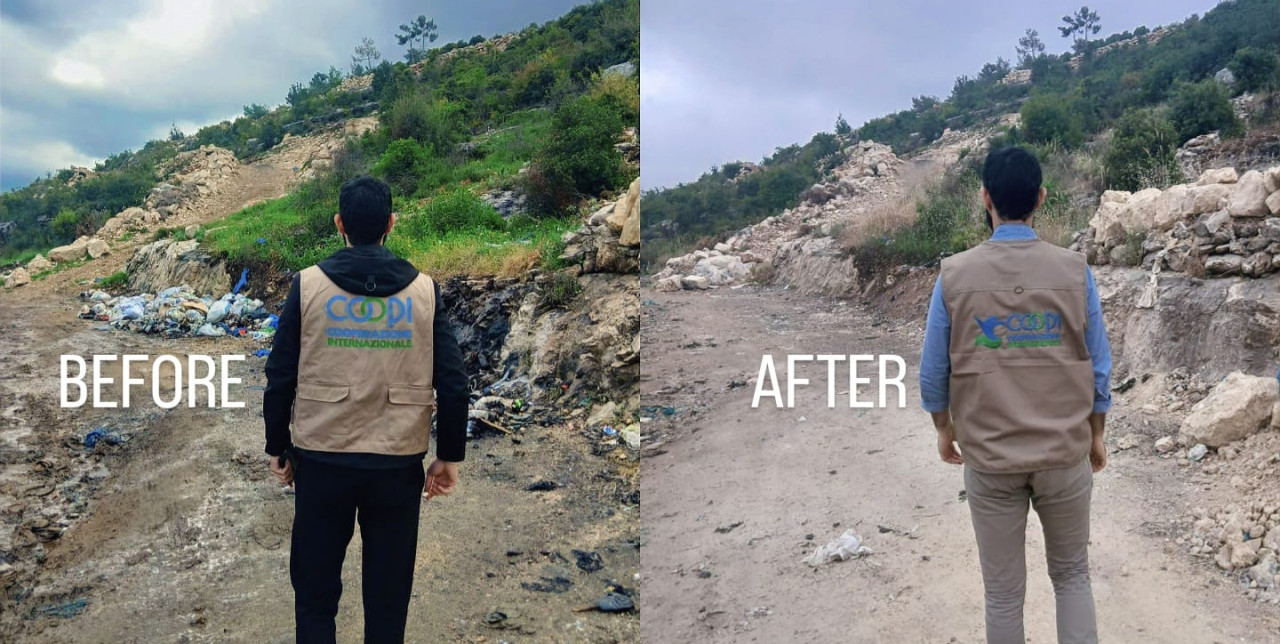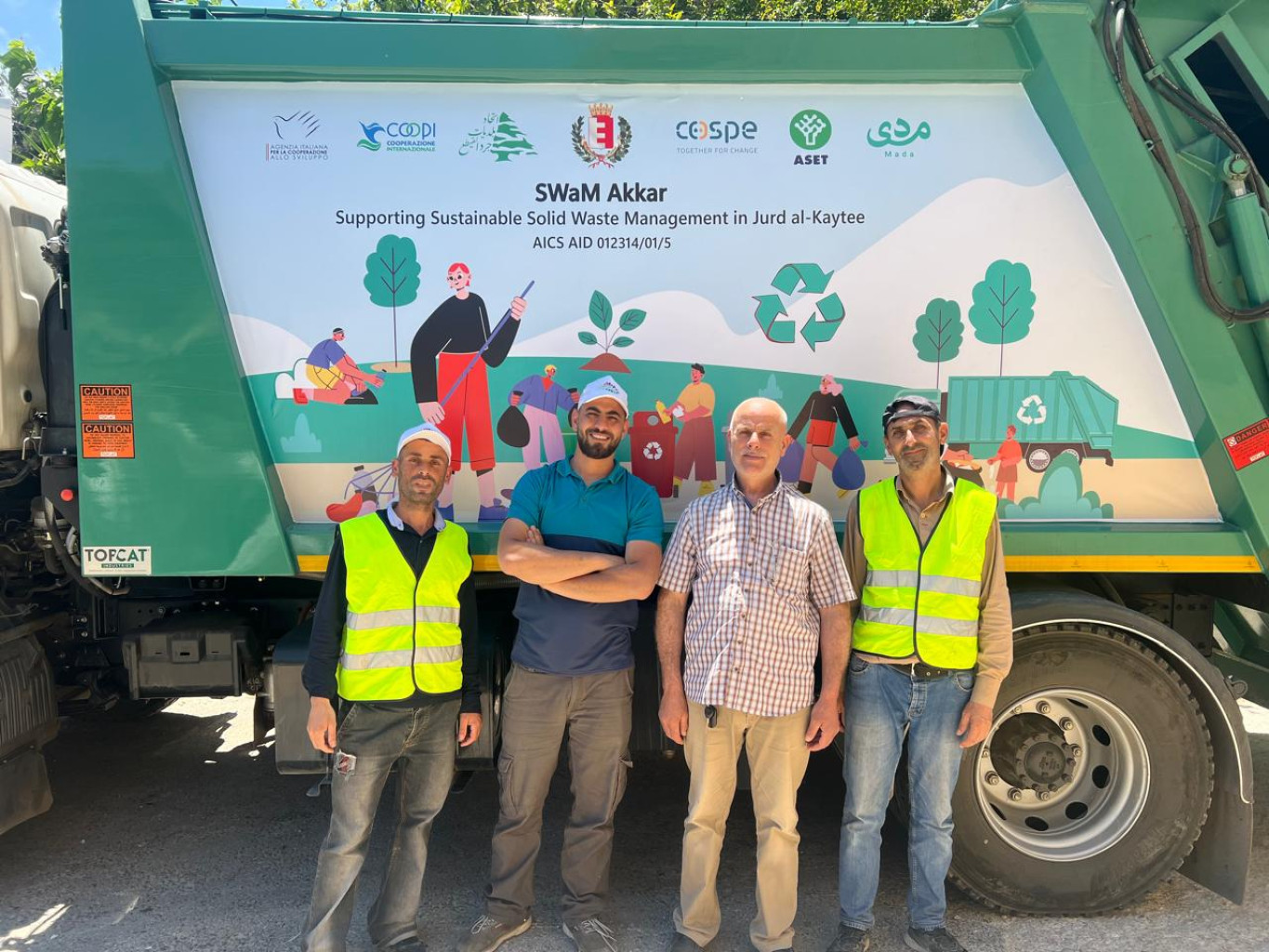17-07-2025 | di COOPI
Lebanon. Sustainable waste management in Akkar
When the sun rises over the olive groves of Jurd?el?Qaitaa, Akkar, Lebanon, the hum of newly dispatched collection trucks cuts through what was once an all?too?familiar stench of uncollected waste. What began on May?27 in the quiet village of Ain?El?Dahab has, in just weeks, transformed the daily rhythm of five more communitiesand the lives of the people within them.
Until this spring, streets piled high with household refuse posed mounting health risks: children slipping between plastic bags, stray dogs rifling through rotting food, flies swarming over puddles of leachate. The challenge was compounded by the recent displacement of over 9,000 people from South Lebanon and southern Beirut, 20?percent housed in schools and the remainder packed into cramped apartments across Fnaydeq, Michmich and Qabaait, placing extra strain on municipal services.
COOPI – Cooperazione Internazionale, with funding from Italy, through the Italian Agency for Development Cooperation (AICS), supported the establishment of a structured waste collection process through the project Access to Water, Environmental Rehabilitation and Sustainable Waste Management in Lebanon. The initiative involved door-to-door pickup, sorting at source, and delivery to recycling facilities, as well as support for the cleaning of dumpsites. As part of the project’s sustainability approach, a cost recovery plan was introduced. The plan focuses solely on covering direct operational costs, which include for instance fuel for collection trucks, salaries for drivers, waste collectors and recycling facility staff, vehicle maintenance and fees for disposing of non-recyclable waste in landfills. To balance these expenses, the project generates income through two main channels: the sale of recyclable materials and service fees collected from participating commercial establishments such as restaurants, shops and hospitals. These fees are adjusted based on the size and type of each business. By the end of the project, the system is expected to reach around 15,000 households and 470 commercial activities, benefiting nearly 70,000 people. With this model, the net cost of managing waste was calculated at approximately $54 per ton of mixed waste, where the system is expected to handle around 15,000 tons of waste per year, about 1,250 tons each month.
To build public trust, in a first phase, the project will cover the cost of collection to launch the service and allow time to adjust toward a final sustainable system. This trial period will let residents experience the quality and effectiveness of the service, such as clean streets and properly functioning sorting lines, before the first $5 monthly fee is due. In August, as the mechanical–biological treatment facility in Fnaydeq becomes operational, the cost recovery tariff will be introduced for the first five villages. Subsequently, three nearby communities will integrate their waste into the same system, followed by Mechmesh and five surrounding villages joining under the same sustainable model in the second phase, which will include all municipalities and full cost recovery.
Governance rests with a new committee, one elected representative from each village, tasked with strategic oversight, monitoring and fee adjustments. The plan assumes that 75 percent of participants will pay their fees; with a $5 margin per household, there is flexibility to increase or decrease fees depending on payment compliance. Non-residential fees are scaled based on the type of establishment, for example, small stores will pay around $10 per month, while larger institutions like lodging facilities, hospitals and schools are charged closer to $150 per month. This structure is designed to cover operational costs fairly while also encouraging waste reduction.
For local families, the difference is already palpable. Parents report cleaner streets and schoolyards for their children. Unemployed graduates, retirees and single parents have found steady work as sorters, drivers and maintenance staff, over 50 people in all, earning reliable incomes and restoring pride to their communities.
COOPI’s broad presence across Lebanon since 2013 spans water and sanitation, livelihoods, and environmental health programs. By combining robust waste?treatment technology, transparent billing and genuine community ownership, this initiative not only clears streets but lays a foundation for lasting environmental health and economic opportunity across Jurd?el?Qaitaa.




 Lebanon
Lebanon
